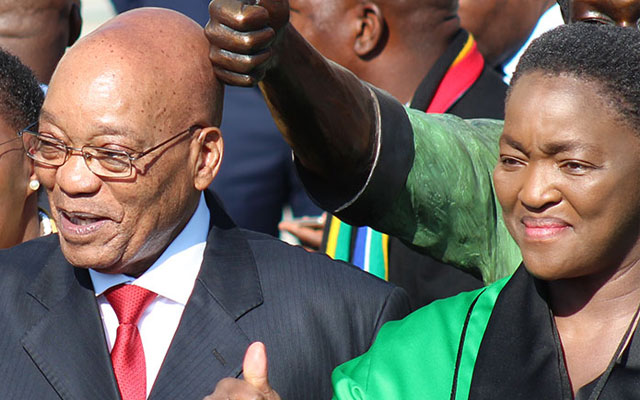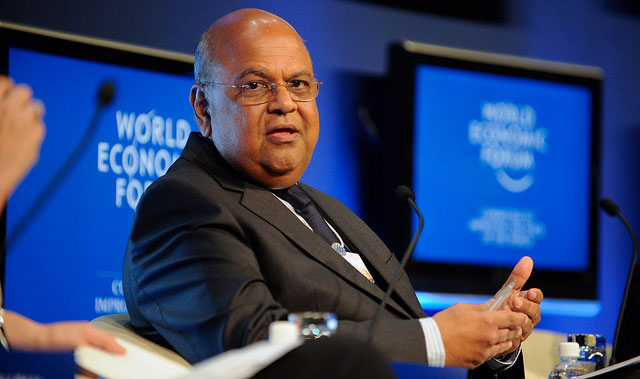
The crisis swirling around South Africa’s system of welfare payments to the poorest third of its people has become a game of chicken.
Social development minister Bathabile Dlamini insists that Net1 UEPS Technologies must continue to distribute the payments after its contract, which the constitutional court ruled illegal, expires on 31 March. An interministerial task force voided a new deal between the South African Social Security Agency and Net1, and will conduct any future talks with the company.
The constitutional court takes up the case on Wednesday when it considers a request by the Black Sash Trust, a human rights group, for the tribunal to oversee a short-term contract for Net1 to continue the payments for a year and supervise efforts of the ministry and Sassa to find a new system after that time. The Post Office said in an application to join the case that it can run the programme within 12 months.
The fiasco is the latest in a series of missteps by President Jacob Zuma’s administration that have curbed growth, dented investor confidence and stoked conflict between government officials and departments. At stake is a system of welfare payments to more than 17m people a year that’s been a signature programme of the ANC to reduce inequality in one of the world’s most unequal nations.
The ANC, which has governed South Africa since the end of white minority rule in 1994, suffered its worst electoral performance yet in a municipal vote in August, losing control of Pretoria, the capital, and the economic hub of Johannesburg amid mounting discontent over high levels of poverty, unemployment and corruption.
“I think it’s a reasonable deduction that the ANC derives a lot of support from the social grants,” said Daryl Glaser, a politics professor at the University of Witwatersrand in Johannesburg. “So, this is potentially dangerous for the ANC.”
The treasury must agree to allow a “deviation” from normal procurement processes before talks can be concluded with Net1 on a new contract for the more than R150bn of payments because it wasn’t put out to a tender. While the government is seeking to contain the costs of the new deal within its budget, failure to agree a price with the company could result in millions of people not being paid, and possible social unrest.

“Strictly speaking, national treasury does not have to get the constitutional court’s permission to approve a deviation,” finance minister Pravin Gordhan said after a briefing to lawmakers on Tuesday. “However, the constitutional court can take this into account when it deliberates over the current legal actions.
“We have to ensure that the payments are done in a legal way,” Gordhan told parliament’s public accounts committee.
The welfare grants crisis dates back to 2012, when Net1’s Cash Paymaster Services was awarded a five-year contract to distribute the payments, which range from pensions to child-care grants. While the constitutional court ruled the contract invalid two years later because procurement rules weren’t followed, the company continued making the payments after the welfare agency failed to appoint a replacement.
Opposition parties and labour union allies of the ANC have demanded that Dlamini resign over the risk that the programme will be interrupted and her failure, despite the court order, to find a new provider for the payments.
“A lot is going to depend on whether the grants actually get paid to all the recipients,” Glaser said. “If the public is seriously inconvenienced, I think that the ANC is taking itself into dangerous territory.” — (c) 2017 Bloomberg LP




